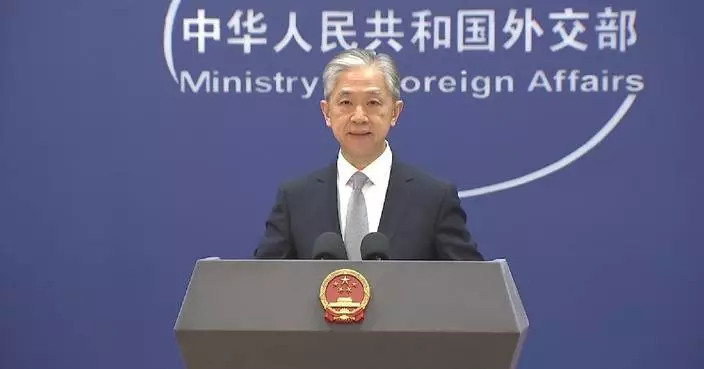China saw a 16.7 percent year-on-year growth in domestic tourism in the first quarter of 2024 with travelers making 1.419 billion trips, according to data released on Tuesday by the Ministry of Culture and Tourism.
Tourism spending during this period rose 17 percent year on year to 1.52 trillion yuan (210 billion U.S. dollars).
This points to further robust growth in tourism heading into the five-day May Day holiday weekend, a prime tourism period in China.
Smaller cities and counties are seeing particularly strong demand. Hotel bookings in the country's fourth- and fifth-tier cities have surged 140 percent compared with the same period last year.
Emerging destinations like Jiangmen City in south China's Guangdong Province, Huainan City in east China's Anhui Province and Changjiang Li Autonomous County in south China's Hainan Province are set to welcome many more visitors.
Earlier this year, the Ministry unveiled pilot programs to develop new offerings for immersive and intelligent tourism.
New options, including industry tours, themed tourism routes and historical cultural districts, will meet travelers' growing preference for customized experiences.

Chinese travelers make over 1.4 billion domestic trips in Q1: Tourism Ministry
While the recent intervention by the Bank of Japan (BOJ) is not likely to feed into the market very soon, the Federal Reserve needs to make some concessions to avoid a potential global currency crisis, said financial experts.
The BOJ last Monday announced a reduction of the amount of Japanese government bonds it offered to buy in a regular purchase operation, seen by many market participants as bank's latest effort to counter the weakening yen.
"Look, a slight reduction in bond purchases is not likely to go and do too much when it comes to financial markets, it's more what it signals from the Bank of Japan and the outlook there. If we do go on to see a follow-up rate hike coming through which wasn't priced in all that long ago, you might start going to see some impact on the Japanese yen. At this point of time, we're seeing the bond yields are drifting up, ten-year JGB (Japan Government Bond) yields and five-year JGB yields are now trading at multi-decade highs," said David Scutt, a senior market analyst with Gain Capital, a brokerage that specializes in foreign currencies.
Stephen Innes, managing director at SPI Asset Management, a company offering advisory services on currency and commodity trading, believes that despite the positive signs across the global economy, Asia will need to "keep an eye" on the impact a weakening yen could have on other regional currencies. (https://www.fxstreet.com/company/spi-asset-management)
"We're starting to see adjustments in the global economy, improvements in Europe and China, and this is quite significant. If we can continue along with these improvements, we're going to see the euro climb a little bit higher, and we're also going to see the [Chinese] yuan probably stop weakening. And this is something we also have to keep an eye on is the yen's correlation with other currencies in Asia. The fear that's happening in the markets right now is that weakened yen could mitigate almost competitive currency devaluations. So we have to keep our eye on the ball here and I think central banks are very cognizant of this," Innes said.
As for what the Fed needs to do, Innes believes that the U.S. shouldn't just care about its own economy. The currency issue is the concern of the world as a whole.
"I think [it's] the last thing the [U.S.] Federal Reserve wants to do. Although their role is to defend the U.S. economy, not necessarily the global economy, but I think they have to make some concessions as far as these hiking measures [go], if they do ever think about going down that road, in the sense this could actually stimulate or actually result in a currency crisis, and that's something you really want to avoid on a global basis," he said.

Bond purchasing reduction shows hawkish signals, Fed needs to move cautiously: experts










